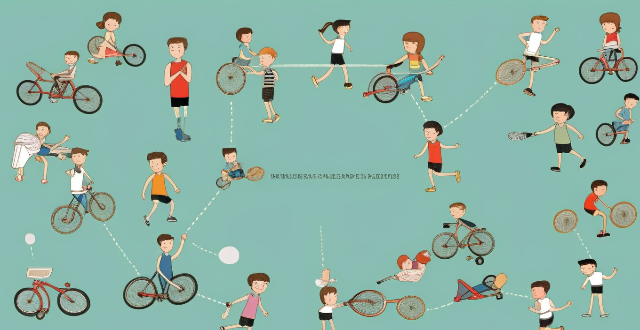The article discusses the potential of sports to transcend political differences and bring nations together. It highlights three key ways in which sports can achieve this: through competition, cultural exchange, and diplomacy. The power of sports is demonstrated through various examples, such as the Olympics, World Cup, NBA, Formula One, Ping-Pong Diplomacy, and Peace Games. The article concludes that while political conflicts may still exist outside of sports, these activities provide a platform for positive interactions and collaboration that can lead to lasting change.

Is it possible for sports to transcend political differences and bring nations together?
Introduction
Sports have been known to be a unifying force that brings people from different backgrounds, cultures, and political beliefs together. However, the question remains: is it truly possible for sports to transcend political differences and bring nations together? In this article, we will explore this topic in depth.
The Power of Sports
Unity Through Competition
One of the most significant ways sports can bring nations together is through competition. When countries compete in international events such as the Olympics or World Cup, they come together under one common goal: to win. This shared objective creates a sense of unity among athletes and fans alike, regardless of their political beliefs or nationalities.
Examples:
- Olympics: Athletes from around the world gather every four years to compete in various sports, showcasing their skills and representing their countries with pride.
- World Cup: Football (or soccer) teams from different nations come together to compete for the title of world champion, uniting fans from all over the globe.
Cultural Exchange
Sports also provide an opportunity for cultural exchange between nations. Athletes often travel abroad to participate in international competitions, allowing them to experience new cultures and form connections with people from different backgrounds. This exposure can help break down barriers and promote understanding between nations.
Examples:
- NBA: American basketball players like Kobe Bryant and Michael Jordan have had a significant impact on Chinese culture, inspiring countless young people to pursue basketball as a career.
- Formula One: Racers from various countries compete in races held all over the world, exposing them to different cultures and promoting cross-cultural understanding.
Diplomacy Through Sports
Finally, sports can serve as a tool for diplomacy between nations. Governments often use sporting events as a means to improve relations with other countries, either by hosting events or participating in them together. This can lead to increased cooperation and dialogue between nations, ultimately fostering better relationships.
Examples:
- Ping-Pong Diplomacy: In the 1970s, the United States and China used table tennis as a way to establish diplomatic relations after years of hostility.
- Peace Games: These events are specifically designed to promote peace and understanding between nations through sports. For example, the Pyeongchang 2018 Winter Olympics helped ease tensions between North and South Korea.
Conclusion
In conclusion, sports do have the power to transcend political differences and bring nations together. Through competition, cultural exchange, and diplomacy, sports can create a sense of unity among people from diverse backgrounds and promote understanding between nations. While political conflicts may still exist outside of sports, these activities provide a platform for positive interactions and collaboration that can lead to lasting change.